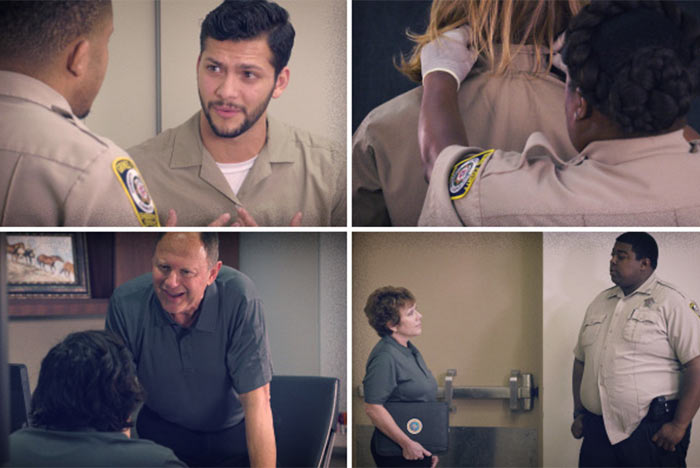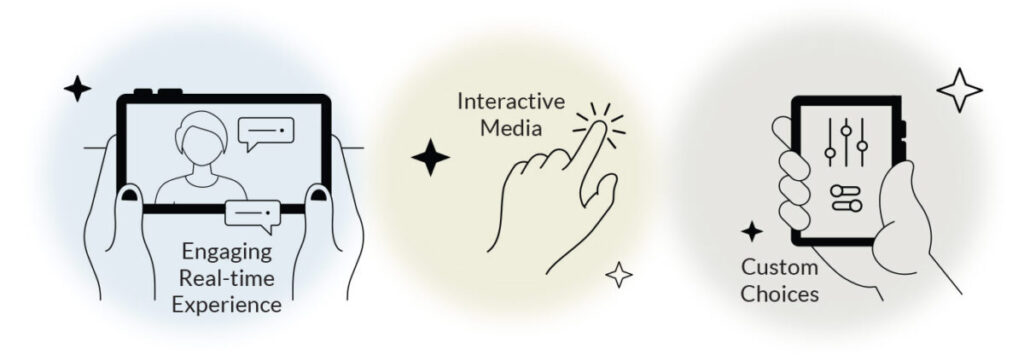Texas A&M Awarded Grant To Develop Augmented Reality Experiences For Correctional Officers
Story by The Texas A&M Center for Educational Technologies

The National Institute of Corrections (NIC) has awarded a one-year grant of $320,000 to Texas A&M University to study the impact of augmented reality and microlearning resources in the field of correctional work.
The project will be directed by Dr. Nicola Ritter, an instructional associate professor in the Texas A&M School of Veterinary Medicine & Biomedical Sciences’ Department of Veterinary Integrative Biosciences.
Since the safety of inmates, staff, and the public — as well as the orderly operation of correctional agencies — is critical for successful outcomes, the need exists for training that reinforces professionalism and excellence in some of the primary correctional duties.
Through the continuation of this cooperative agreement, Texas A&M will collaborate with the NIC Prisons Division to identify essential routine duties that can have huge repercussions if performed improperly, and then develop short, three- to five-minute videos that address the proper execution and the consequences if done otherwise. These videos, which will be developed at Texas A&M University, will be added to NIC’s growing library of on-demand training content.
The anticipated project audience ultimately includes nearly 419,000 correctional officers from agencies across the United States.
The goal of this program is to assist federal, state, local, and tribal correctional agencies by creating and offering an innovative microlearning resource titled “The Effectiveness of Scenario-based Micro-learning Interactive Videos” that can assist in reinforcing correctional excellence in several of the primary essential duties of today’s correctional workforce. It will incorporate the most recent research findings on the correctional workforce, and it will make use of augmented reality to enhance learners’ ability to apply their knowledge to address the challenges the correctional workforce faces.
Data collected from learning gains and learner feedback will be used to refine the augmented microlearning environment. The training resources developed through this research project will then be made available to all federal, state, local, and tribal correctional agencies.

The Center For Educational Technologies
The multidisciplinary team assembled for this project is ideally suited to develop microlearning resources to overcome the common challenges outlined above.
Since 2012, Ritter and the team at Texas A&M University have created and delivered innovative learning experiences for federal, state, and local agencies. The award-winning team at the Center for Educational Technologies are highly experienced in providing evidence-based training programs, with most of the team having advanced degrees in their area of specialty service. The Center for Educational Technologies has created over 1,100 videos to support faculty in their research activities and teaching efforts.
Through a previous award, Ritter and the Center for Educational Technologies created a series of 15 scenario-based microlearning interactive videos with NIC’s program manager and working group consisting of correctional officers. These videos covered topics on procedural skills, behavioral changes, and branching scenarios. The videos have interactive decision points where the learner needed to make a choice at that point in time. After forming a decision, the learner received just-in-time feedback specific to their response and provided feedback on the correct answer. Breaking down the procedures into short videos and pairing each video with a question kept the learner engaged while putting themselves and their decisions into the story. Learners may repeat the video series and make different decisions along the way to experience different outcomes based on their decisions.
“I’m looking forward to expanding on our previous work to include virtual reality and augmented experiences for our learners,” Ritter said. “The Center for Technologies has always delivered more than I could imagine in developing innovating learning experiences for my research activities. They are my go-to group to develop training and outreach components of my research.”
The set of augmented reality microlearning materials are expected to be released in Spring 2024. Ritter and Dr. Molly Gonzales (co-principal investigator) will conduct the education program evaluation in collaboration with the Department of Justice’s desired outcomes.
###
For more information about the Texas A&M College of Veterinary Medicine & Biomedical Sciences, please visit our website at vetmed.tamu.edu or join us on Facebook, Instagram, and Twitter.
Contact Information: Jennifer Gauntt, Director of VMBS Communications, Texas A&M College of Veterinary Medicine & Biomedical Sciences, jgauntt@cvm.tamu.edu, 979-862-4216


